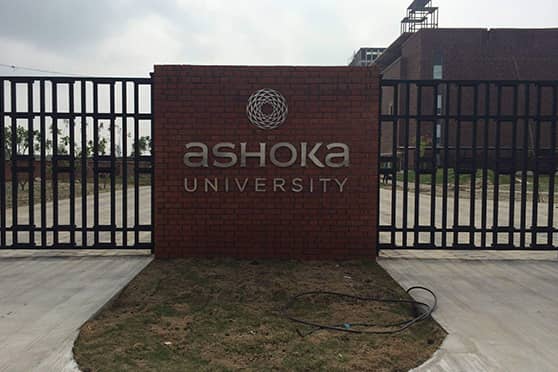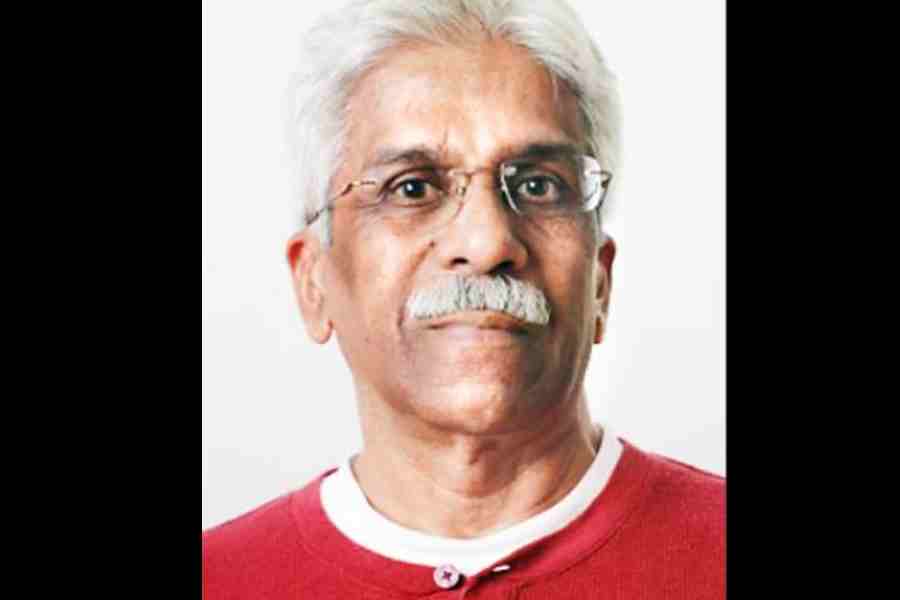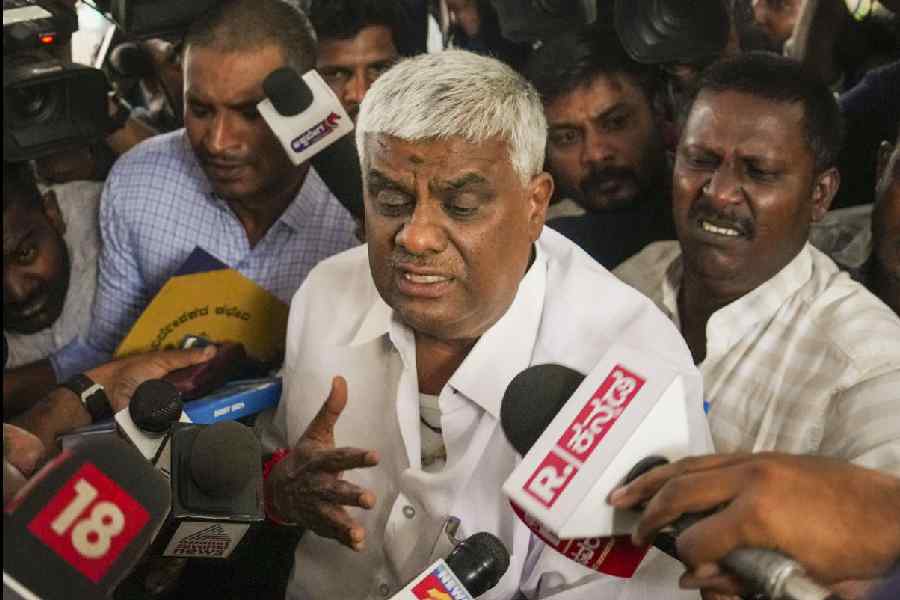More departments came out in support of the economics department’s call to stop work over the breach of academic freedom at Ashoka University as support increased for the professors who have quit.
The varsity administration remained tight-lipped on the issue, with freshers set to reach the campus on Saturday.
The campus, in Haryana and around 50km north of New Delhi, has been on the boil this week. Assistant professor of economics Sabyasachi Das quit after the varsity distanced itself from his working paper alleging electoral manipulation by the “incumbent party” in the 2019 general election, and initiated an inquiry on the paper. Another economics professor, Pulapre Balakrishnan, quit soon after Das.
On Wednesday, the economics department gave the varsity’s governing body (G.B.) until August 23 to accept two demands: offer Das the job he quit and ask the G.B. to stop evaluating faculty research. Else, teachers cannot “carry forward their teaching obligations”. The departments of English, creative writing and political science have joined this call to stop work.
On Thursday evening, the psychology department’s statement of solidarity said: “We pledge our unequivocal support for the demands and plan of action put forward by the Economics department in their resolution.” It is not clear if they would go on strike should there be one.
Several other departments, mainly of the social sciences and humanities, have also expressed solidarity with the economists.
For academics
Das and Balakrishnan have drawn the support and admiration of academics and student groups outside the campus as well.
More than 300 economists from 87 Indian institutions issued a statement in support of Das through the Society for Economics Research in India, of which he is a member.
They said: “We, economists working in India, strongly believe that academic freedom is the cornerstone of a vibrant educational and research community, and that everyone must have the right to pursue knowledge, share their findings, and engage in open dialogue without the fear of censorship or retribution. We stand in solidarity with Prof Sabyasachi Das and extend our support for the demands of the economics department at Ashoka University. We urge the Governing Body of Ashoka University to immediately reinstate Prof Das unconditionally.”
Calcutta University Teachers’ Association general secretary Sanatan Chattopadhyay also demanded Das’s reinstatement. Chattopadhyay said in a statement: “The experience of Prof Das is not an isolated incident. We are deeply worried to observe that it is rather a part of an ongoing systematic effort to silence any critical voice.”
Das graduated from St. Xavier’s College, Calcutta, in 2006.
The Edict, the student-run newspaper at Ashoka, reported that vice-chancellor Somak Raychaudhury had not met the Student Government (AUSG) representatives despite requests. The paper quoted AUSG house of representatives speaker Aditi Warrier as telling a meeting on Wednesday that “AUSG is currently discussing mobilisation for the incoming batch of freshmen for their move to campus later this week. The incoming batch has been kept in the loop unofficially through their batch group on WhatsApp, and will receive official communication once they have access to their student emails”.
For management
But the varsity management found rare sympathy from eminent Pune-based political scientist Suhas Palshikar who has decried the action on Das.
He said in several posts on X (formerly Twitter): “We are blaming founders, funders and governing council of Ashoka…. Having created this rather excellent institution, they find themselves surrendering on their dreams. Why? Most probably, not because they have changed their minds on questions of liberal approach to academic work. So, imagine the pressures.
“Not difficult to imagine from where and how the pressures operate. Against interests of the university, but surely targeting private business activities of the founders. So an invisible hand behind this needs to be noted, exposed and neutralized. Ironically, though govts bend backwards under corporate pressures, they also make sure corporates remain tied to the state power structures. Ashoka episode underscores this complex entanglement of Politic(s) and economics. How we ensure autonomous spheres of civic activity is the challenge.”











